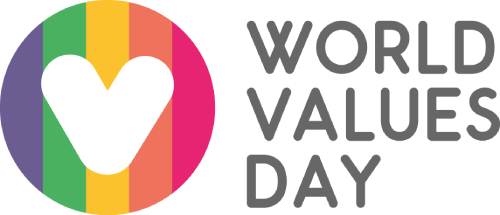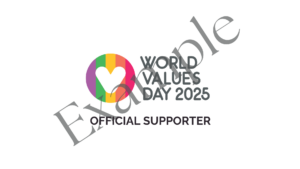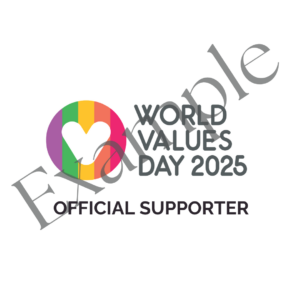By Kate Cooper
Tammy Erikson speaking at the 2012 Global Drucker Forum, identified 12 things that she believed were no longer true, one of these was a fundamental misunderstanding that
ALL OUR EMPLOYEES VALUE BASICALLY THE SAME THINGS
This assumption, that not only do we know what other people value, but their values align with our own is commonplace.
Canadian psychoanalyst and management consultant, Elliot Jaques, was one of the first to recognise the importance of values in organisations. Since then many academics and practitioners have identified the importance of values, devised tools and models to calculate and describe them, and more recently, marketing professionals have considered articulation of brand values as essential. It’s increasingly recognised that brands are no longer owned and controlled by the organisations who have the copyright of the trademark of the brand, brands are defined by all stakeholders, those who feel they share a sense of the values the brand represents to them.
In January this year, the Institute of Leadership & Management asked over 1400 leaders and managers about their career aspirations and ambitions for 2019. One in three respondents expressed a desire to change their job this year. Nearly three quarters were motivated to make a new start because they felt they could achieve more in their careers. When we further explored the reasons that people gave for wanting to change their jobs, many felt that they were not valued by their managers.
Although many of us know what it feels like when we are valued, it is quite difficult to articulate. It is sometimes, easier to talk about pay rises, promotions and training opportunities rather than admit we don’t feel recognised and appreciated for the work we do.
It is undoubtedly the case that meaningful work contributes to overall wellbeing. In 2017, Matthew Taylor, chief executive of the Royal Society for the Encouragement of Arts, Manufactures and Commerce, published a report entitled Good Work: The Taylor Review of Modern Working Practices. The report outlined “seven steps towards fair and decent work with realistic scope for development and fulfilment” Taylor’s 7 steps, recommend we define who is a ‘worker’, pay attention to the minimum wage and the impact of piece work and zero hours contracts not only on pay but also on holiday and sick pay. Surely the next step has to be consideration of values and how we find meaning in our work ? But, as we all know, however important to our working day, the whole idea of values and their role in organisational life extends beyond the basic of good work and the feeling of being valued by managers and colleagues, values underpin our entire lives.
Recognising this crucial role of values , The Institute of Leadership & Management undertook as yet unpublished research asking leaders and managers about organisational values and their own personal values. Not surprisingly ,there was a disconnect. Only 35% of respondents reported being involved in deciding their organisation’s values, fewer than 10% of respondents reported any consultation with customers or stakeholders outside the organisation. The majority of organisations decide their values at Board and executive management level. The only people with significant involvement were people in senior management teams which meant almost total exclusion of younger voices, the Millennials who we hear so frequently, seek meaning in work. Delivering a presentation at a recent Institute conference, Mike Fetters of Glassdoor emphasised how important a company’s values are when attracting new talented people to work there. Does this disconnect, this exclusion from the formulation of the values that senior management expect employees to live and behave in accordance with matter? It certainly challenges the idea of finding meaning in our work, being fully engaged and going that important ‘extra mile’ we hear so much about.
In 1957 Leon Festinger highlighted the importance of consistency with our values and behaviour, describing a lack of alignment as ‘ cognitive dissonance’ a state that most humans find uncomfortable and seek to reduce by changing either beliefs or behaviour to close that gap. The most commonly cited value in the Institute research was ‘integrity’. Few individuals would disagree with the importance of integrity, females rated it 1st as a personal value even more highly than males who put it 2nd after ‘doing the right thing’ But integrity has many meanings, not only is it a recognition of a strong moral compass , it also means being undivided, being whole. If, as our research seems to suggest, there is an inconsistency with our personal values and the values of the organisations we work for, we will not feel ‘whole’ and this may certainly impact mental health.
One particularly interesting finding was the importance of diversity being cited as the 4th most popular value although ‘Inclusion’ didn’t even feature in the top 10. If our workplaces are genuinely diverse , there will be proportionate representation of different genders, ethnic minorities, people with disabilities and varying sexual orientations. If diversity as a value is meant and lived, people are equal and respected, then workplaces would be truly inclusive places where people are not only engaged in good work but there is no disconnect between their personal values and those of their employer.
Recent BITC research certainly suggests this is not the case. Minority groups reported a higher incidence of mental health conditions, 79% of LGBT+ people reported experiencing mental health problems where work is the source with 32% hiding or disguising their sexual orientation for fear of discrimination. 25% of LGBT+ employees with disabilities report being encouraged by work colleagues to hide their sexual orientation whereas only 6% with no reported disability received similar advice.
Tammy Erikson questioned the belief that somehow everyone in an organisation values the same thing in 2012, in 2017 the Taylor Review highlighted the importance of the employee voice and work that is adequately rewarded, Institute of Leadership & Management research recognises a disconnect between personal and organisational values and BITC research suggests that a commitment to diversity isn’t the lived experienced of minority groups at work
World Values Day provides a great opportunity not only to give voice to highlight that such a state of affairs is ‘not right’ but also to revisit our own values, to examine the role of work in our lives and to appreciate the strong connection with values and our well-being at work and at home.
 About the author
About the author
Kate Cooper, Head of Research, Policy & Standards, Institute of Leadership & Management, joined the Institute after a career in a university business school where she led the Management, Strategy & Leadership group, she is a regular commentator on television, radio, records a weekly podcast, is a columnist in Dialogue and Edge journals and frequent speaker at conferences in UK and abroad on a range of topics arising from the Institute’s research agenda.
Join The Institute of Leadership & Management to explore ‘Values’ at the inaugural International Leadership Week (Nov 18 – 21, 2019). ‘Values’ provides a rich vein of topics relevant to leading in today’s organisations in a global marketplace. It will be four days of free, online events; full of lively podcasts, compelling webinars, engaging interviews with high-profile thought leaders and thought-provoking discussion. This is a unique opportunity to be part of a global thought-leadership discussion around ‘Values’. Book your seat here: https://www.institutelm.com/whats-on/int-leadership-week-listing.html
Further Resources
https://www.institutelm.com/free-tools.html
https://www.institutelm.com/resourceLibrary/new-year-new-job.html







